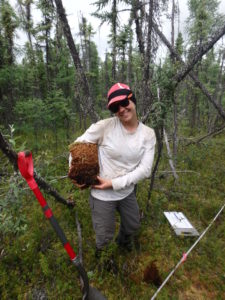Work-Integrated Learning
Algonquin College has a long-standing history of providing work-integrated learning to students. Many of our students’ favourite aspect about their time at Algonquin is the work-integrated learning (WIL) opportunities that our programs provide – experiences like co-op, field placements, community service learning, applied research, clinical placements, and more. It’s a hands-on approach that puts you a step ahead for your chosen career.
Co-operative Education

What is co-op? As a co-op student, you’ll either be studying full-time or working full-time. The co-op department will work with you at least two academic semesters before you start working to help prepare and facilitate your job search. Co-ops are paid work-integrated learning opportunities.
Your career starts with co-op. You’ll…
- Develop professional skills
- Shape your personal brand
- Network and build relationships
- Explore your career path
- Paid full-time industry experience
How does co-op work?
- Preparation Term: Two academic semesters before your work term you’ll complete– Cooperative Education Readiness Activities in GEP1001 where you will develop your professional skills and learn how to write a resume and cover letter.
- Search Term: Apply for jobs and participate in interviews.
- Work Term: Work full-time while completing co-op assignments.
Learn more by visiting our Co-op website.
Field and Clinical Placements
What is a placement? Field or clinical placements provide a practical opportunity for students to demonstrate some of the vocational program standards in a professional setting. Students develop technical skills through the application of the knowledge gained in the prerequisite courses. Placements are unpaid work-integrated learning opportunities.
Applied Research and Community Projects
Our Office of Applied Research and Innovation focuses on innovation at the regional (rural) level, developing projects and partnerships with local community enterprises, industry, and/or organizations to support social and environmental best practice, and contribute to economic sustainability within our region.
Our Purpose
Collaborate with industry and community to deliver on forward-thinking initiatives relevant and practical to regional needs while providing students with exceptional work-integrated learning opportunities that challenge, empower, and prepare students for future career success.
How Applied Research benefits students
- Work on real projects
- Acquire hands-on applied education and training by working with external partners
- Hone research and critical thinking skills by learning to research, analyze, and problem solve within a real project setting
- Become more competitive in the job market (great resume enhancer!)
- Develop more confidence in your abilities and gain a sense of empowerment from the experience